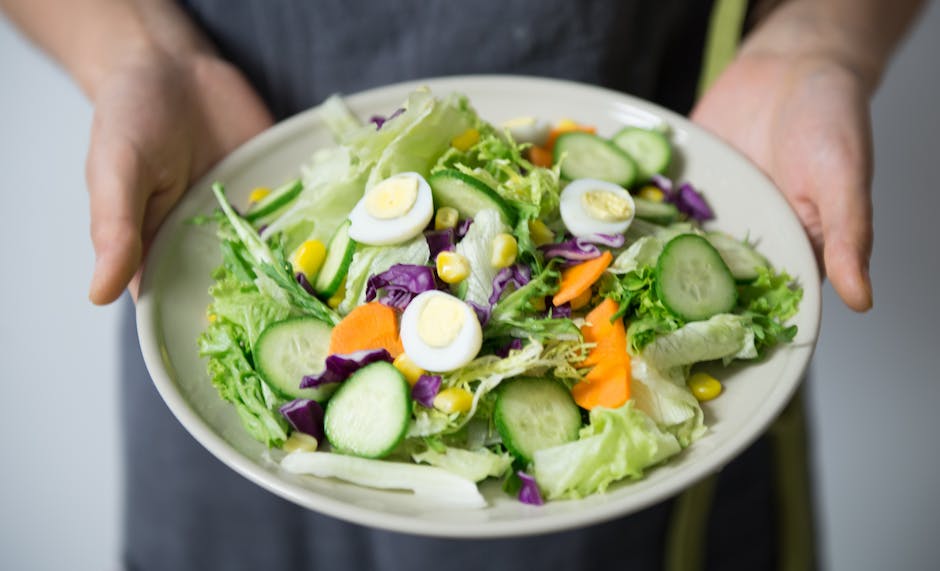As runners, we all know the importance of training and physical fitness when it comes to improving our running performance. However, what often gets overlooked or underestimated is the impact of proper nutrition on our overall running performance.
Nutrition plays a crucial role in making sure our bodies have the right fuel and energy needed to achieve optimal running results. As such, runners must focus on consuming a healthy and balanced diet that meets their nutritional needs.
A common mistake many runners make is neglecting certain food groups such as carbohydrates, proteins, and healthy fats. Each of these food groups provides crucial nutrients that our bodies need for optimal performance. For instance, carbohydrates provide our bodies with fuel to keep us going for longer distances. Proteins, on the other hand, help maintain and repair muscle tissue, while healthy fats provide extra energy and support the absorption of essential vitamins in our bodies.
Another important aspect of nutrition when it comes to running is hydration. Adequate hydration is critical in preventing dehydration and enhancing athletic performance. Runners should aim to drink water regularly throughout the day and increase their fluid intake during training and races.
Fueling for Weight Loss and Optimal Running Results
Losing weight can be a great way to improve your running performance. However, it is essential to approach weight loss in a healthy and sustainable way. A common misconception is that runners must restrict calories drastically to lose weight. However, this can lead to decreased energy levels, poor recovery, and even injury or illness.
As such, runners should prioritize eating a well-balanced diet that supports their weight loss goals while still providing enough energy for fueling their runs. A calorie deficit can be helpful for weight loss, but runners should aim for only a moderate deficit and not excessively restrict calories.
Furthermore, runners should focus on consuming nutrient-dense foods that provide the most significant nutritional benefits while keeping food intake within daily calorie limits. Examples of nutrient-dense foods include lean proteins, whole grains, fruits, vegetables, and healthy fats.
In summary, achieving optimal running results requires a comprehensive approach, including proper training, rest, and nutrition. Runners must prioritize consuming a well-balanced diet that meets their nutritional needs and provides enough energy to support their training while not compromising their weight loss goals. In the next section, we will further explore the benefits of specific macronutrients in a runner’s diet.
Benefits of Protein and Hydration for Runners
Protein is a crucial nutrient for runners, as it plays an essential role in maintaining and repairing muscle protein synthesis. Ensuring an adequate intake of protein can benefit runners by increasing muscle mass, improving recovery, and reducing the risk of injury.
A good rule of thumb for protein intake is to aim for 0.5 to 0.75 grams of protein per pound of body weight. Foods rich in protein include lean meats, fish, eggs, dairy, beans, and nuts.
Hydration is another critical aspect of proper nutrition for runners. Dehydration can significantly affect running performance, leading to muscle fatigue, cramps, and decreased endurance.
To stay well hydrated, runners should aim to drink at least 8-10 cups of water daily, and actively replace fluids lost during training and races. Consuming hydrating foods such as fruits and vegetables can also be helpful in promoting hydration.
Balancing Macros: Finding the Right Mix for You
Macronutrients, also known as macros, are the three main nutrients needed in large quantities by the body to function correctly: carbohydrates, proteins, and fats. Each of these macronutrients plays a specific role in the body, and finding the right balance between them is critical to optimize running performance.
Carbohydrates are the primary source of energy used by the body during intense exercise such as running. Consuming adequate amounts of carbohydrates is crucial in ensuring that runners maintain their energy levels throughout their activity.
Proteins, as mentioned earlier, play an essential role in maintaining and repairing muscle tissue. Consuming enough protein is critical for runners who want to build muscle, recover faster, and reduce their risk of injury.
Healthy fats are also essential in a runner’s diet as they provide a slow-release of energy, maintain cell function, and promote healthy brain function. It is essential to choose healthy fats such as nuts, avocado, and fish while avoiding saturated and trans fats.
In summary, emphasizing a balanced mix of macronutrients is critical for runners to optimize their performance. Carbohydrates, proteins, and healthy fats should be consumed in adequate amounts to provide the body with the right fuel needed for running activity. Aiming for a balanced and diverse diet offers more benefits than targeting any specific macronutrient.
Meal Planning for Runners: Tips and Tricks
Meal planning is an effective way to ensure that runners consume a well-balanced and nutrient-dense diet consistently. By planning ahead, runners can avoid skipping meals, eating unhealthy foods, or falling short of their nutritional goals during training.
To start meal planning, runners should make a list of their favorite healthy foods, make a grocery list to purchase these items, and schedule time to prepare meals. Preparing meals in advance and storing them in meal prep containers ensures that they are easy to access and enjoy throughout the week.
Focusing on nutrient-dense foods such as whole grains, fruits, and vegetables can help runners maintain optimal energy levels and support their training goals.
The Importance of Recovery Nutrition for Runners
Post-exercise nutrition is critical in supporting runners’ recovery, repairing muscle tissue, and replenishing energy stores. It is recommended to consume a carbohydrate-rich snack or meal after training to replenish glycogen levels and high-quality protein for muscle repair and recovery.
Examples of recovery foods include whole-grain toast with peanut butter and a banana, chocolate milk, or a protein shake. Runners should aim to consume their recovery snack within 30 minutes of finishing a workout for optimal benefits.
In addition to carbohydrates and proteins, hydration and electrolyte replacement is also a crucial aspect of recovery nutrition for runners. Consuming a sports drink or water with added electrolytes can support hydration and electrolyte balance.
In conclusion, the connection between nutrition and running performance is undeniable. Runners must focus on consuming a well-balanced and nutrient-dense diet that meets their unique needs. Addressing macronutrient balance, hydration, protein, and meal planning are crucial aspects of achieving optimal running results. Therefore, emphasis should also be given to the importance of post-exercise nutrition, which can optimize recovery and support long-term training goals.

